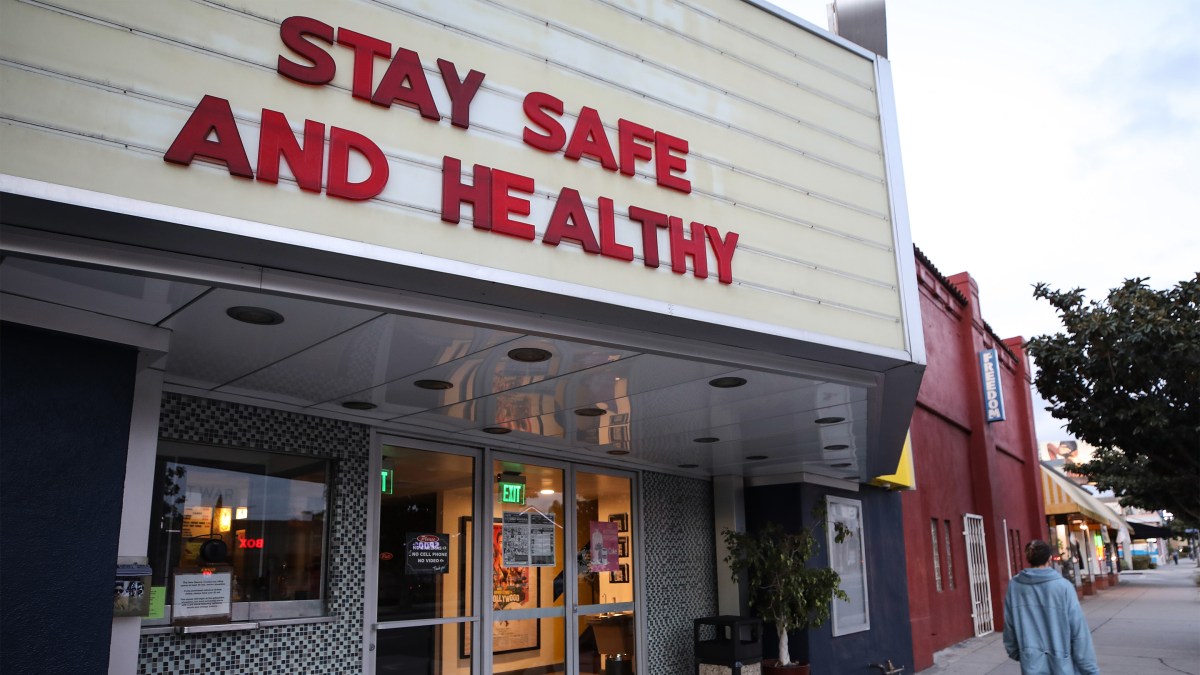
Friday’s consumer spending report shows people saved 19% of their disposable income in June — that’s down a bit from April, but way up from before the crisis. And Thursday, the Commerce Department’s gross domestic product report found that the savings rate rose to over 25% in the entire second quarter.
Savings can serve as a buffer in case of financial emergency. But every dollar saved is a dollar that’s not spent in an economy that relies on consumer spending.
The higher savings rates are a sign that the government’s relief efforts have boosted many people’s incomes.
Jay Bryson, managing director and chief economist for Wells Fargo’s Corporate and Investment Bank, said savings rates spiked in April.
“Because you had those $1,200 checks that many people received, as well as the enhanced unemployment benefits — $600 a week,” Bryson said.
And with the economy shut down, people have had fewer places to spend their money, according to Randy Frederick, vice president of trading and derivatives with the Schwab Center for Financial Research.
“That could be going out to a restaurant, going to the movies, going to a sporting event, those sorts of things,” he said.
Those activities come under the category of services. Seth Carpenter, chief U.S. economist at UBS, said spending on services continues to be low.
He said there’s a reason for that.
“The continued shortfall in services expenditures almost surely reflects the spending patterns of the middle and upper end of the income distribution,” Carpenter said.
It’s usually better-off people who spend money on dining out and sports games. With those venues closed, savings rates have jumped — partly because many of those people took their relief checks and just stashed them away.
The service sector is a big employer. So less spending there means less employment.
“And less employment means less spending overall in the economy, and it can have that vicious cycle component to it as well,” Carpenter said.
Looking forward, he said it’s hard to predict where saving and spending rates are headed. There are many variables, like how long the country will be in lockdown mode, and how long will the government continue to provide relief for the economy.
It’s still the question on everyone’s minds: What’s going on with extra COVID-19 unemployment benefits?
The $600-a-week payments have ended, officially, as of July 31. For now, there is no additional federal pandemic unemployment assistance. House Democrats want to renew the $600 payments. Senate Republicans have proposed giving the unemployed 70% of their most recent salary by this October, when state unemployment offices have had time to reconfigure their computer systems to do those calculations. Until then, jobless workers would just get another $200. But, nothing has been signed into law yet.
What’s the latest on evictions?
For millions of Americans, things are looking grim. Unemployment is high, and pandemic eviction moratoriums have expired in states across the country. And as many people already know, eviction is something that can haunt a person’s life for years. For instance, getting evicted can make it hard to rent again. And that can lead to spiraling poverty.
Which retailers are requiring that people wear masks when shopping? And how are they enforcing those rules?
Walmart, Target, Lowe’s, CVS, Home Depot, Costco — they all have policies that say shoppers are required to wear a mask. When an employee confronts a customer who refuses, the interaction can spin out of control, so many of these retailers are telling their workers to not enforce these mandates. But, just having them will actually get more people to wear masks.
You can find answers to more questions on unemployment benefits and COVID-19 here.
As a nonprofit news organization, our future depends on listeners like you who believe in the power of public service journalism.
Your investment in Marketplace helps us remain paywall-free and ensures everyone has access to trustworthy, unbiased news and information, regardless of their ability to pay.
Donate today — in any amount — to become a Marketplace Investor. Now more than ever, your commitment makes a difference.
tinyurlis.gdv.gdv.htu.nuclck.ruulvis.netshrtco.detny.im
مقالات مشابه
- شرکت صادرات و واردات کالاهای مختلف از جمله کاشی و سرامیک و ارائه دهنده خدمات ترانزیت و بارگیری دریایی و ریلی و ترخیص کالا برای کشورهای مختلف از جمله روسیه و کشورهای حوزه cis و سایر نقاط جهان - بازرگانی علی قانعی
- شرکت صادرات و واردات کالاهای مختلف از جمله کاشی و سرامیک و ارائه دهنده خدمات ترانزیت و بارگیری دریایی و ریلی و ترخیص کالا برای کشورهای مختلف از جمله روسیه و کشورهای حوزه cis و سایر نقاط جهان - بازرگانی علی قانعی
- ویژگی های بهترین دکتر روانشناس در تهران
- Slow labor market recovery continues with unemployment claims at 870,000
- نحوه استفاده از بشر آزمایشگاهی
- شلاق قهوه دستور
- Seller concessions: How a seller can pay your closing costs
- شرکت صادرات و واردات کالاهای مختلف از جمله کاشی و سرامیک و ارائه دهنده خدمات ترانزیت و بارگیری دریایی و ریلی و ترخیص کالا برای کشورهای مختلف از جمله روسیه و کشورهای حوزه cis و سایر نقاط جهان - بازرگانی علی قانعی
- شرکت صادرات و واردات کالاهای مختلف از جمله کاشی و سرامیک و ارائه دهنده خدمات ترانزیت و بارگیری دریایی و ریلی و ترخیص کالا برای کشورهای مختلف از جمله روسیه و کشورهای حوزه cis و سایر نقاط جهان - بازرگانی علی قانعی
- شرکت صادرات و واردات کالاهای مختلف از جمله کاشی و سرامیک و ارائه دهنده خدمات ترانزیت و بارگیری دریایی و ریلی و ترخیص کالا برای کشورهای مختلف از جمله روسیه و کشورهای حوزه cis و سایر نقاط جهان - بازرگانی علی قانعی